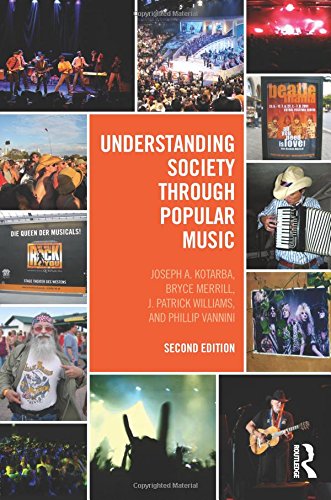Phillip Vannini
I earned my M.A. in Communication in 1999 and my PhD in Sociology in 2004--both from Washington State University. I joined Royal Roads University in 2005 and became Professor in 2011. In November 2010, I was appointed Canada Research Chair (Tier II) in Innovative Learning and Public Ethnography. Within the School of Communication and Culture I teach courses in fieldwork, research methodology, and cultural studies.
My research--and current or recently completed projects--spans the following areas:
Public Ethnography: I really do believe that ethnography is a way of life, and I try to have as much time as possible to engage in fieldwork of my own and to closely supervise students' ethnographic work. My personal preference is for ethnographies that are reflexive, narrative, performative, creative, sensuous, and embodied--though I am happy to supervise all types of fieldwork. Most of my research is ethnographic, and most of my edited books collect original ethnographies and develop contemporary ethnographic research strategies. Because I firmly believe that academic knowledge must go beyond the walls of academia, I strongly favor and support public outreach of research through a large variety of modes, media, and genre.
Mobilities: My interests in mobility focus primarily on everyday life spatial mobilities. I have recently completed a three-year SSHRC-funded ethnographic study on marine mobilities (namely, BC Ferries) in coastal British Columbia. As of 2011 I have begun to research another way in which mobilities shape everyday life: off-grid living (see below for more).
Material culture and technology: Ranging from the significance of everyday material objects to the study of mobility technologies, and from the ontological character of materiality to that of technoculture, my research projects in this area are epitomized by my research on the ferries as well as by my recently begun fieldwork on off-the grid living. The latter examines how people live their everyday lives while connecting alternatively--or utterly disconnecting--from the assemblages that provide most of us with electricity, water, and access to the rest of the world.
Social aspects of the human body and the senses: Together with Dennis Waskul (Minnesota State University) and Simon Gottschalk (University of Nevada, Las Vegas) I have been conducting a series of studies on the senses. These qualitative studies have investigated primarily the idea of somatic work--the idea that sensation is reflexive, though not always in representational ways.
Cultural geographies of everyday life: Beside an interest in issues of space and place, as an islander I am deeply interested in small island ways of life. Many aspects of my research on BC Ferries and off-grid living deal with the unique geographical and temporal characteristics of lived spaces.
Interactionism and non-representational theory: Most, if not all, of my research draws upon process and practice-based philosophy like pragmatism and phenomenology. For me this boils down to the idea that culture is a way of life, and that the performance of everyday life amounts to the generation of culture. All of my studies focus on either practices, rituals, skills, sensations, techniques, lifestyles or otherwise ways in which everyday realities are made and remade. Because of the way I understand culture to be my topics of study are often rather "curious," as it were. For example, I have studied bumper stickers, Himalayan-made apple pie, the experience of waiting, tanned skin, the weather, marriage proposals, and more interesting... stuff!
Popular items by Phillip Vannini
View all offers-
In the Name of Wild: One Family, Five Years, Ten Countries, and a New Vision of Wildness
Vannini, Phillip; Vannini, April
Item prices starting from
View 25 offers£ 3.44
-
Off the Grid: Re-Assembling Domestic Life (Innovative Ethnographies)
Vannini, Phillip
Item prices starting from
View 40 offers£ 10.16
-
Understanding Society through Popular Music
Item prices starting from
View 6 offers£ 9.04
Also find
Used -
-
-
Inhabited: Wildness and the Vitality of the Land
Vannini, Phillip; Vannini, April
Item prices starting from
View 16 offers£ 12.63
-
The Cultures of Alternative Mobilities: Routes Less Travelled
Item prices starting from
View 36 offers£ 31.16
-
Popularizing Research: Engaging New Genres, Media, and Audiences
Item prices starting from
View 16 offers£ 14.09
You've viewed 8 of 21 titles








